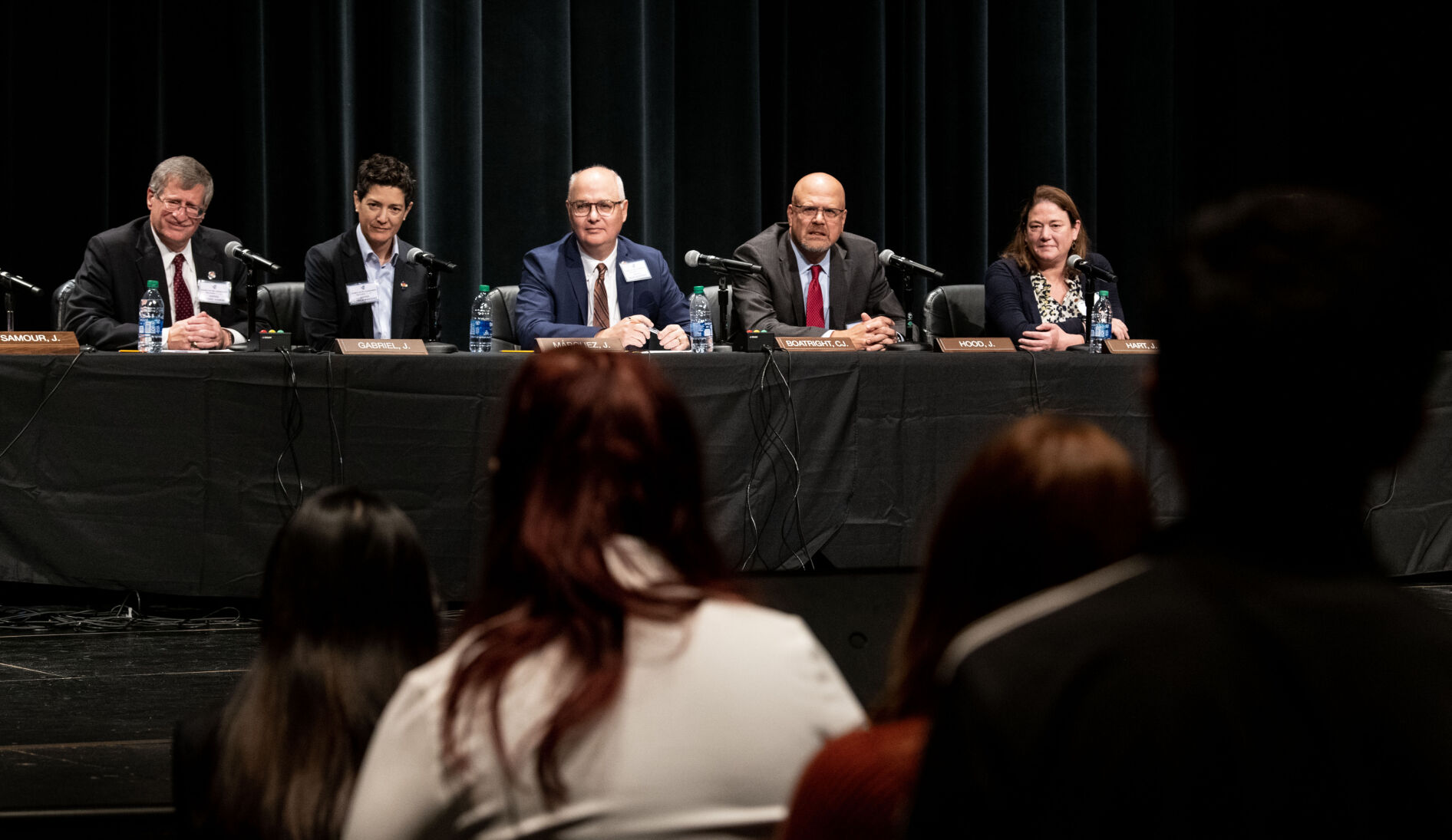Colorado Supreme Court to hear case of conflicted judge

When a judge took office in Saguache County four years ago, she presided over a criminal case in which she previously, as a public defender, had appeared briefly on behalf of the defendant. No one raised a red flag at the time.
Now, the Colorado Supreme Court has agreed to review a split decision from the state’s Court of Appeals, in which the majority ordered a new trial for Donald L. Garcia on the grounds that District Court Judge Amanda C. Hopkins should have recused herself.
At least three of the seven members of the Supreme Court must consent to hear a case on appeal.
Garcia’s criminal appeal applies Colorado law – which prevents judges who were formerly “of counsel” from handling the same case – to the apparent failure of the defense, the prosecution and Hopkins herself to catch the conflict when it first occurred.
Garcia stood trial in 2019 for aggravated motor vehicle theft and a jury found him guilty. Hopkins took office in July 2018 and inherited the case.
Before taking the bench, Hopkins managed the Alamosa public defender’s office, which represented Garcia. Although she was not Garcia’s assigned attorney, Hopkins appeared on his behalf during a pretrial conference in April 2018.
The proceeding was brief, as Garcia himself failed to appear. The only action taken was the reinstatement of Garcia’s cash bond and a rescheduling of the trial.
Following Garcia’s conviction, his appellate lawyer noticed Hopkins had briefly represented Garcia in the trial court while substituting for his regular lawyer. Garcia then challenged Hopkins’ handling of his case as the trial judge, claiming it ran afoul of Colorado law.
By 2-1, a three judge panel of the Court of Appeals agreed Hopkins’ non-recusal affected the fundamental fairness of the trial.
“Judge Hopkins appeared as counsel for Garcia at the pretrial readiness conference and was therefore required to disqualify herself. Her minimal level of representation at the hearing does not change our conclusion,” wrote Judge Ted C. Tow III last year for himself and Judge Michael H. Berger.
Tow added that he did not fault Hopkins, given the minimal level of documentation for her appearance. But for the same reason, the majority did not penalize Garcia for failing to object at the time.
Judge John Daniel Dailey disagreed with the decision to order a new trial for Garcia. Dailey found it hard to believe Garcia’s lawyer at trial did not know of Hopkins’ involvement in the case, and concluded Garcia had waived his right to have an appellate court review his claim.
The Colorado Attorney General’s Office appealed to the Supreme Court, arguing Hopkins’ involvement as a public defender was minimal and that defendants should not be allowed to stay silent in the trial court when there is reason to object to a judge’s handling of the case.
“It keeps a party from sitting on known grounds for disqualification in a strategic gamble that the judge may rule in their favor, then deploying those grounds as an appellate parachute to get a do-over with a different judge if that gamble doesn’t pay off,” wrote Assistant Solicitor General Brittany Limes Zehner.
The public defender’s office argued the Court of Appeals’ decision should stand, pointing out a separate Colorado law also requires a conflicted judge to receive the consent of the parties before handling a case.
The Supreme Court announced on Monday that it will examine whether a defendant forfeits the ability to have appellate courts review such a claim when the defense knows a judge should recuse herself but fails to object in the trial court.
The case is People v. Garcia.












